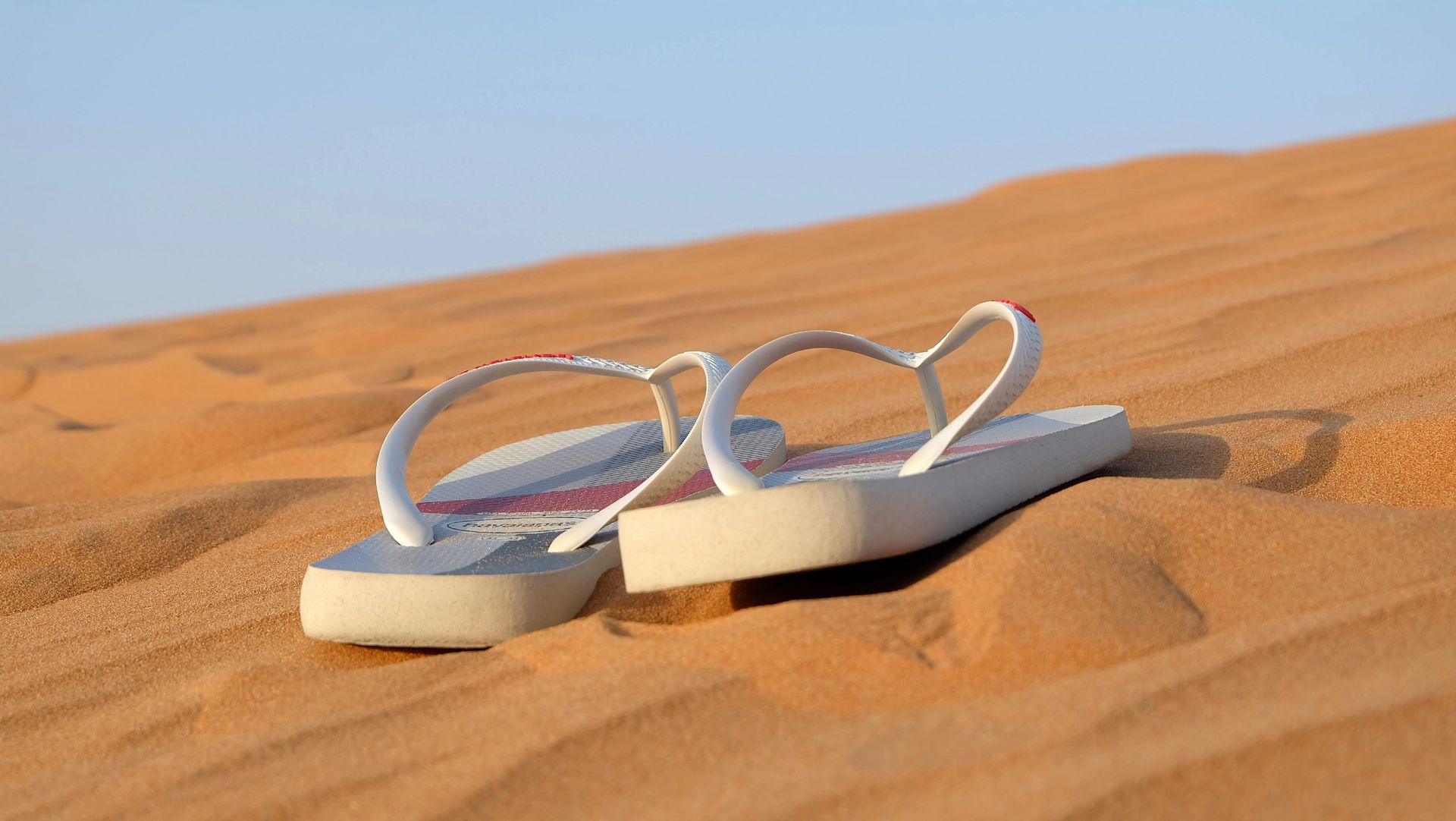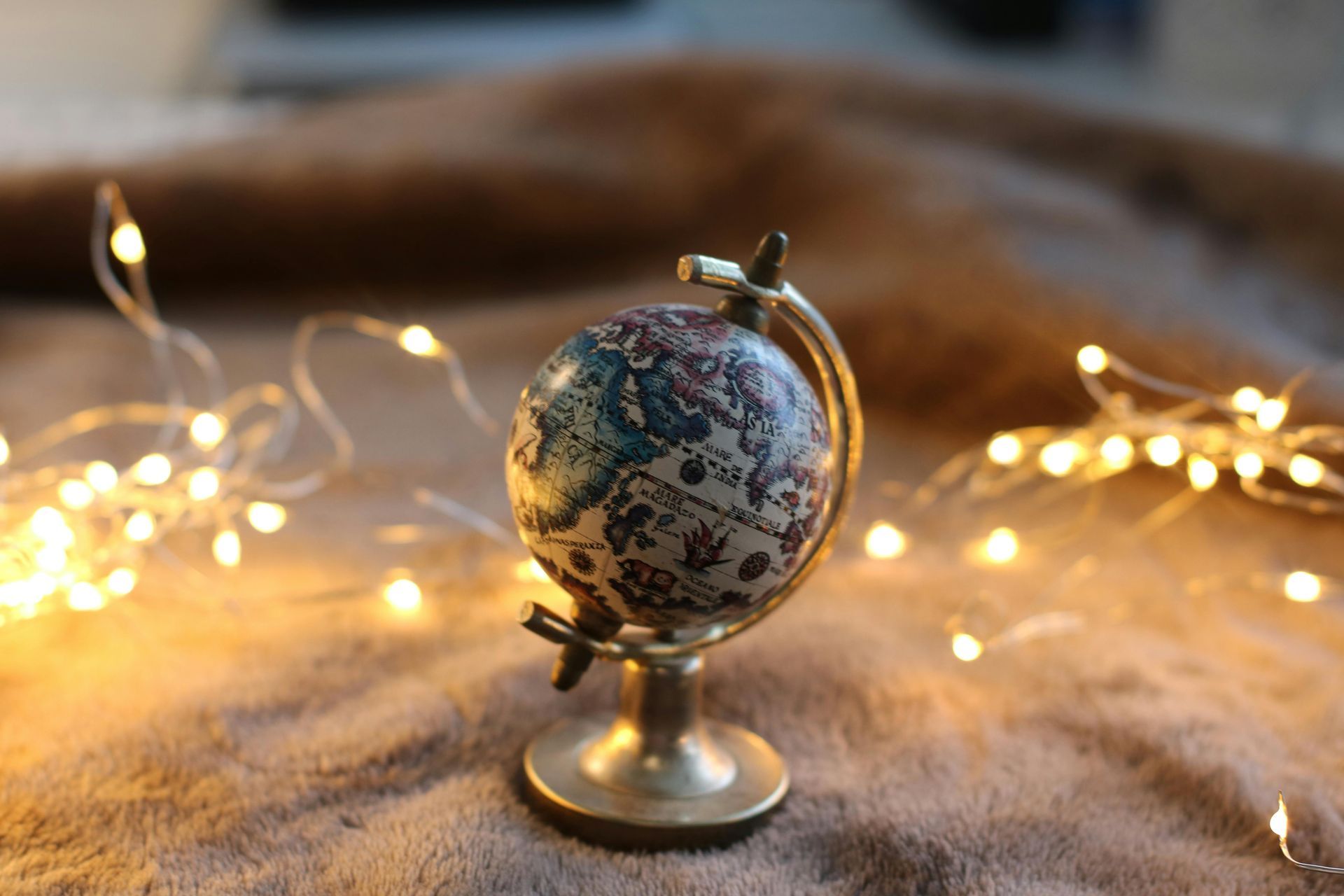Stay Informed

The Beginning: Unanswered Questions. My journey to wellness has not been an easy one. It started with strange symptoms—tight skin, extreme fatigue that didn’t go away even after sleep, and changes in my appearance. My skin changed colour, my nose grew longer, and my lips became so small I had to use a teaspoon to eat. The exhaustion was unbearable; after eating, I had to rest before even washing my hands. People called me lazy, not knowing I was dying inside. No mother would sit back and watch her daughter suffer. My mum and I visited hospitals across Accra, Kumasi, Koforidua, and the Central Region, but no doctor could give us answers. One even said I had leprosy, sending us into a panic. But I refused to accept that. Then, in 2015, everything got worse. A stroke attack changed my face so drastically that mirrors became forbidden in my house. My pictures were taken down. And as if that wasn’t enough, my mother—the pillar of my life—passed away. One month later, I had my first shortness-of-breath attack at 2 AM and was rushed to Family Health Hospital in Teshie. There, a doctor who had trained under Dr. Dey took one look at me, put me on oxygen, and ordered autoimmune tests. That was the moment my life changed. The Diagnosis: Systemic Scleroderma with Pulmonary Fibrosis The results were in—systemic scleroderma with pulmonary fibrosis, an autoimmune disease. I still remember my sister’s face. I had just lost my mum. How was she going to tell me this? All she could do was cry. When I finally asked her, “Am I going to die too?” she had no answer. A physician sat me down and explained that my illness was chronic but manageable, only at Korle-Bu by a rheumatologist. I was devastated. I felt betrayed by God. What happened to all my sacrifices? My prayers? Did He even care? But looking back, my fears weren’t just about the diagnosis. It was about the financial burden, losing my independence, and not knowing where this new journey would lead. It scared everything out of me. Seven Years Later: A Woman of Faith and Resilience It’s been seven years now, and I stand here as a woman filled with faith, hope, and aspirations. With Jehovah’s help, I’ve learned to accept my condition and embrace the new me. He has provided for me in ways I can’t explain. Living with a chronic illness is tough, but it has made me adapt. I’ve learned to: ✔ Know myself better ✔ Engage in less stressful activities ✔ Take one step at a time ✔ Surround myself with positive people The tRi support group has been a huge blessing—emotionally and financially. I’ve met friends who understand my struggles and love me unconditionally. And I’m forever grateful to Dr. Dey and Dr. Doe, who always show up for me. I still remember when I had a panic attack at the hospital. I was too weak to walk, so I called Dr. Doe. Minutes later, I saw him coming from the third floor, carrying my folder himself. All he said was, “Linda, I understand your situation.” I had never felt so seen and loved. Pain, Strength, and Survival Yes , I have seen pain. I have lived with it. But pain has made me stronger. I know fear. I know loneliness. I know frustration. I know the loss of friendships, relationships, and even the loss of self. But I also know that I am surviving—through the One who gives me power. I am hard-pressed but not crushed. I am perplexed but not in despair. I am knocked down but not destroyed. I didn’t choose this illness. Life happened. But I choose to live it out beautifully. Scleroderma took my looks but not my happy personality. To everyone battling silently, never let go of Jehovah. Keep fighting. Love, pray, laugh, hope, and live one day at a time. People look at me and call me an epitome of Jehovah’s grace. And you know what? I believe them.

Health and sustainability are two sides of the same coin. As we observe World Health Day , it’s essential to recognize that our health is deeply intertwined with the environment around us. From the air we breathe to the water we drink and the cities we live in, sustainable development plays a pivotal role in shaping public health outcomes. At the core of sustainable development is the idea that today’s progress should not come at tomorrow’s expense. When we implement eco-friendly infrastructure, promote clean energy, and protect natural resources, we also protect our health—especially for vulnerable populations, including those living with chronic conditions such as rheumatic diseases. 🌱 How Sustainability Impacts Public Health Clean Water and Sanitation Access to safe drinking water and proper sanitation reduces the risk of waterborne diseases. Sustainable water management practices help ensure long-term availability and protect communities from contamination. Air Quality and Pollution Control Air pollution is one of the leading environmental risks to health, contributing to respiratory illnesses, cardiovascular disease, and more. Investing in renewable energy, public transportation, and emission control drastically reduces these health hazards. Green Urban Planning Cities that include green spaces, walking paths, and bike lanes promote physical activity, reduce stress, and lower pollution. Urban design that encourages outdoor activity is particularly beneficial for managing conditions like arthritis and other rheumatic diseases. Climate-Resilient Health Systems As climate change continues to impact global weather patterns and disease distribution, building resilient healthcare systems becomes vital. Sustainable health facilities—powered by solar energy and built with eco-friendly materials—can serve communities even in the face of natural disasters or resource shortages. Sustainable Food Systems Encouraging the production and consumption of local, nutritious, and sustainably grown food improves both personal health and environmental outcomes. 💡 What Can We Do? Support Eco-Friendly Policies : Advocate for green infrastructure, clean energy projects, and sustainable healthcare funding. Raise Awareness : Educate your community about the links between sustainability and health. Live Responsibly : Conserve water, reduce waste, and use environmentally safe products in your daily life. On this World Health Day, let’s remember that health isn’t just a personal matter—it’s a collective responsibility. Sustainable development isn’t a luxury; it’s a necessity for ensuring long-term well-being for ourselves and future generations. ️ Learn more about how sustainability impacts health at www.trighana.org #WorldHealthDay #SustainableHealth #HealthyFuture #PublicHealth #ClimateAndHealth #Rheumatology #tRiGhana

Beginnings and the First Signs. I went to Legon (University of Ghana), but honestly, I didn’t really want to be there. My love was art, but school felt like something I just had to do. While I was there, I started experiencing some weird triggers—intense pins and needles in my body—but I brushed it off. The pain would come and go, so I figured I was good. Corporate Stress and a Life-Changing Accident After Legon, I worked in a bank as a relationship officer in corporate banking on the Asia and Middle East Desk. My daily routine involved a lot of “Xie Xie” and “Ni Hao”—handling international clients, managing accounts, and basically navigating high-pressure work in multiple time zones. Stressful as hell. Then, a week before Christmas in 2013, I had an accident coming back from work. That was the turning point. According to the doctor, the accident either triggered my MS, or I had already been misdiagnosed with Myasthenia Gravis. Six months after the accident, I had to leave the bank by mutual consent. My body wasn’t feeling right, and my mind too. I didn’t tell my family immediately because I felt guilty—like I was letting them down. Eventually, I told them and decided to focus on school, so I enrolled in a Business Administration program at GIMPA. Still not my passion, but it was something. Caregiving While Declining During that time, my dad had a serious health issue. Suddenly, I found myself playing the role of an ad hoc nurse, even though my own physical state wasn’t great. I remember one night at the hospital when no nurses responded to our calls. I had to carry him from his bed to the bathroom. To this day, we both agree that was a miracle of gargantuan pro max proportions. As my Dad started getting better, I started getting worse. But it wasn’t until 2019, when my cousin (really my big sis, who’s an angel) came down from the U.S. and saw how bad things were, that I finally got answers. She arranged for me to see a neurologist over there, and in December 2019, I was officially diagnosed with MS. I started infusions every six months (Rituximab). Through it all, I received the best of care, no matter the cost. My family and loved ones made sure I got what I needed—medically, emotionally, and financially. They never hesitated. No shortcuts. Whatever it took, they made it happen. That level of sacrifice? It’s something I’ll never take for granted. Seclusion and Darkness One of the first major symptoms that hit me hard was optic neuritis—a condition that made me extremely sensitive to light. I had to stay in the dark most of the time, away from screens. My love for football dimmed a bit, too, because watching matches became difficult. But honestly, Manchester United and the Black Stars haven’t made me miss much, so I’m good. Lol, people also had jokes— “Sewell can’t see well no more.” And you know what? Even I had to laugh at that one. Prophecies, Silence, and the Last Meal Question Of course, with everything happening, people around me saw this as a spiritual attack. I kept getting invited (sometimes dragged) to prayer camps. Pastors would show up at my place. One even told me he saw a vision of me dying on May 5, 2020. That day was something else. I was already exhausted—mentally, emotionally, physically. So I just looked the man dead in the eye and asked, “ What exact time? Morning or evening? Should I be having my last breakfast or lunch? ” To be fair, the pastor did make us pray against it. But the specific nature of what he said stuck in my head for a long time. I ended up being in the U.S. on “the day,” and let’s just say every action I made was done with extreme intentionality. That whole experience really showed me something though. My friends were all there when the prophecy was made. And when I turned to look at them, they were silent. Not one of them objected. They just stared at me while I looked at them incredulously, waiting for someone to call out the nonsense. But no—it was just me against the room. That was the moment I fully realized—people will believe what they want to believe, even if it means watching their friend accept a death sentence from some random man of God. But I hold no malice toward them. They were doing the best they could at the time, trying to make sense of something none of us fully understood. We were all just navigating it the best way we knew how. MS: The Duet You Never Asked For MS will play with your mind—keep it hanging, let you cuss at yourself, and laugh at the same time. It’s like a constant battle. Or let’s say, a duet. Sometimes you win. Sometimes too, you take the L . And if you don’t take the L with grace? Na you do your body, because no one cares. It will build your inner strength ( I wish that strength manifested in my physique though… just saying ) . But it’s all good. The Mental Game: Brain Fog and Regret If there’s one thing MS has done, it’s malfunction my brain in the most ridiculous ways. Brain fog? That’s an understatement. I’ll make decisions—sometimes impulsively, sometimes thinking I’m completely in the right—only to later realize I was completely wrong. Sometimes it’s immediate. Sometimes it’s days or weeks later. But here’s the real kicker—pride won’t always let me accept what I’ve done. Even when I know deep down that I messed up, owning up to it feels like a fight against myself. It’s frustrating. It makes relationships—friendships, family, work—all harder to navigate. Because MS doesn’t just affect my body; it plays chess with my mind, making me question my own decisions, reactions, and sometimes even my memory. One minute, I think I’m making sense. The next, I’m replaying a conversation and realizing, “Wait… that didn’t go the way I thought it did.” I’ve had to learn to slow down. To pause before reacting. To step back and ask myself, “Is this me, or is this MS acting up?” It’s an ongoing lesson, but I’m learning. Faith, Doubts, and Seeing Through the BS My faith was tested—no lie. “It is well” became a phrase I heard way too often, and after a while, I started interpreting it as a way for people to close a conversation because it was too awkward. But here’s the thing—through all of this, I actually became less religious and more spiritual. I stopped chasing after signs and started focusing on a real relationship with God. No theatrics, no middlemen, just me and Him. Oh, and guess what? I’m a Sunday school teacher now. Lol, who would have thought? The same me that was side-eyeing pastors? Now I’m here teaching kids about faith. Life is funny like that. Moving Forward Passion turned profession. I jumped into the creative scene, and I have a lot of plans—written and unwritten. Kids have to be a part of it because they are one of my passions. And as for my social life? I wasn’t exactly a party animal, but I was around. I enjoyed being with people, showing up, vibing. So yeah, getting back into the world is a process, but I’m making moves. One thing I know for sure? God and I, we get move. E no source yet, but till then, I’ll not be having any last meals anytime soon.
